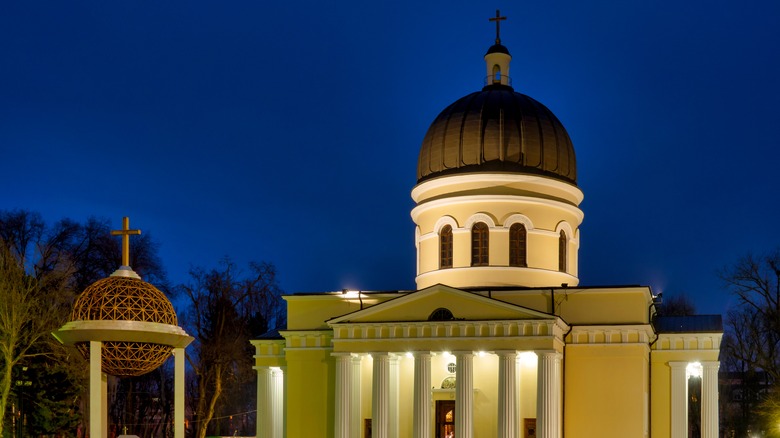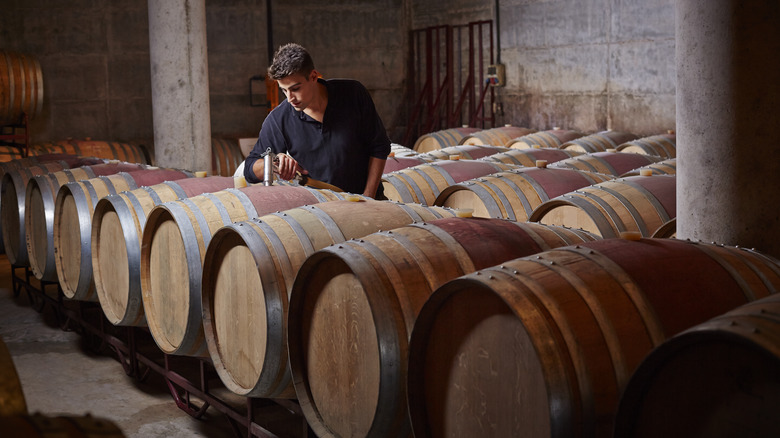Eastern Europe is all too oft overlooked for its more popular sister to the West. France, Italy, Spain, and Portugal are well-known European wine destinations, and there’s certainly no denying that regions like Bordeaux and Tuscany produce some of the best wine in the world. However, travelers who limit themselves to just these countries are simply robbing themselves of trying lesser-known wines. Not to mention, everything is generally more affordable in Eastern Europe, so the price of your glass (or bottle) of vino won’t hurt your wallet as much. According to Numbeo, the average cost of a bottle of wine in Moldova is just $4.47, compared to $7.54 in France.
Out of all of Eastern Europe’s countries, one particular nation ranks high in both affordability and quality when it comes to its wine. Moldova is an off-the-beaten-path destination and one of Europe’s least-visited countries, making it especially ideal if you’re looking to escape the hustle and bustle. Moldovan grapes go all the way back to 2800 B.C., meaning not only is its wine absolutely delicious, but it also comes with a deep-rooted history.
The best way to experience Moldova’s wine

To get the best wine-centered experience in Moldova, you simply cannot miss Mileștii Mici. With over 2 million wine bottles at a vineyard spanning 155 miles, the size of this wine collection is seriously no joke. So much so, that Guinness World Records awarded Mileștii Mici with having the largest wine collection in the world in 2005.
Aside from casually visiting the largest wine collection in the world (no big deal), Cricova Winery is another must-see destination when in Moldova. The best way to experience Cricova is by booking a wine-tasting experience. This takes you into a unique underground world to see where and how the wine is produced — complete with a train ride through the maze of subterranean tunnels. Visitors on TripAdvisor have particularly raved about Cricova’s sparkling wine. Whether you prefer red or white, Moldova has a varietal for you. The reds in this region are typically deep and robust, their whites are dry and floral, and their sweet wines hit the spot for a dessert wine after your meal.
It’s not all wine; here’s what else to do when visiting

You don’t see many travel guides on Moldova, but we’ve got you covered. This Eastern European country is fairly small, making it easy to see a lot in a short period of time. While wine is one of the main draws for tourism, there are plenty of other things to do here. The capital city of Chișinău is a great place to base yourself to get the best of what Moldova has to offer. Take a stroll through the lush, peaceful Dendrarium Park on your way to the National Museum of Ethnography and Natural History. In the main square, make sure to check out Catedrala Nasterea Domnului, a cathedral that is open to the public.
For a quick political and history lesson, take a day trip to Transnistria, sometimes referred to as “the country that doesn’t exist.” This territory is an unrecognized state following a military conflict in 1992. Internationally, Transnistria is considered part of Moldova, but the best way to get a better in-depth understanding is by visiting with a local guide.

